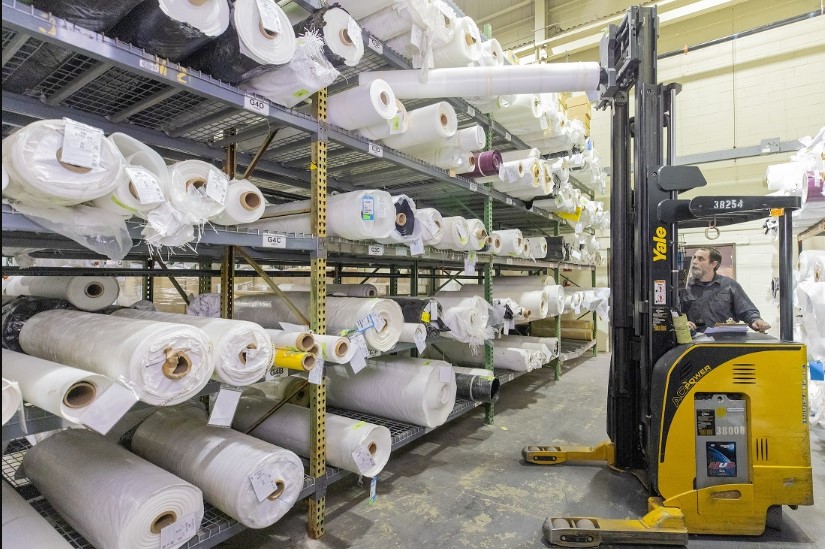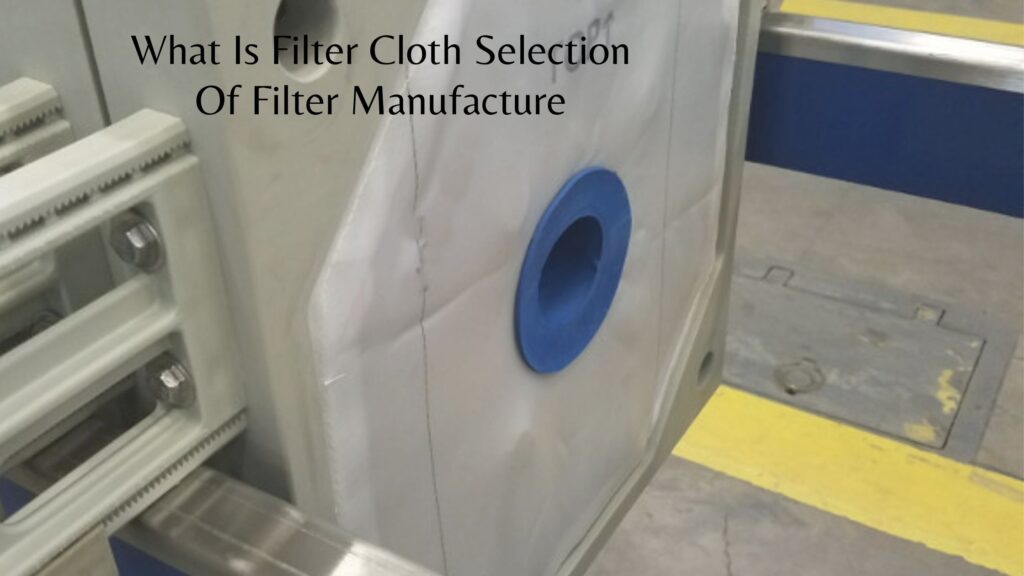Having the right filter cloth on your machine will extend its life and make it more efficient. But it’s not just about getting the correct thread count – you need to choose the right material as well.
Here are some guidelines on how to choose the right filter cloth for your application, whether you’re picking out a new one or retrofitting an old one.
Key Points on Filter cloth
Filters are used for air and water purification, as well as many other processes. Without a filter, water or air will often become polluted due to their ability to attract unwanted particles.
Filters can be made from a wide variety of materials depending on their end use. While some filters are simply made to prevent or trap small particles, others have much more complicated purposes and must contain numerous layers.
One such example of a layered filter is a plate-and-frame filter which includes both coarse and fine layers within its design. Each layer plays an important role in filtering impurities before they enter your system.
How to do Filter Cloth Select ?
This guide will help you understand what types of materials are commonly used in filter cloth selection and how they affect filtration process performance at industrial or home scales.

Sources of Water Pollution
In addition to these human sources, there are a few natural causes of water pollution. Naturally occurring chemicals in groundwater or minerals leached from soil can cause water pollution.
An example of naturally occurring chemical pollutants are nitrates and sulfates that may come from fertilizers and sewage. Heavy metals like mercury also occur naturally but can lead to problems if they enter into streams through erosion or runoff.
Excessive levels of nitrates and heavy metals in drinking water can lead to health problems, including cancer and damage to organs like kidneys and livers.
Types of Filters
While there are many types of filters available on today’s market, they each fall into three primary categories based on their general use. Pre-filters are used to remove large particles and contaminants from water before it enters a more specific filter.
Sediment or sedimentation filters trap dirt and other sediment before it has a chance to damage or clog up another filter. And finally, tertiary filters remove harmful chemicals that could impact the taste or smell of your water.
Depending on what you need for your filter system, you’ll want to match up filters with similar characteristics and longevity (i.e., size and materials) in order to ensure continued operation over time. so Filter Cloth selecting is neccsary .
Applications of Filters
The cost of water treatment is influenced by many factors, including water volume and quality. Determining which type of filters to install for your needs involves a decision-making process that takes into account several factors.
By understanding what affects each factor, you can make well-informed decisions about how to treat your water based on your specific application. Automatic filter press performance and material selection are directly affected by these variables.
How does a Filter Work?
In order to understand how filter cloth selection works, it helps to understand how a filter works. In general, there are two different kinds of filters: non-pressurized and pressurized.
The latter contains a pump that forces water through small openings in a mesh screen called filter material. If you were to watch water pass through a pressurized filter, you would see that it comes out relatively quickly when compared with non-pressurized filters.
A pressurized system also uses less energy to function than its counterpart. That said, choosing between these two options depends on your specific needs. Filter press manufacturer in gujarat is best for all people.
Care and Maintenance
Filters are common throughout industry, including in manufacturing and process plants. They serve as a way to remove contaminants from materials and liquids, or even as a way to purify or cool them.
Filters may be made of metals, fabrics or some other material that serves an appropriate function for your particular industry. Whatever their material composition, filters require careful maintenance in order to ensure they continue to work efficiently over time.
Although it may seem intimidating at first glance, filter maintenance is actually quite straightforward – particularly if you’re using cloth filters that have been specifically designed for ease of use.
Conclusion
Filter Cloth Selection need for your machine to make its life more and work it efficiently.
